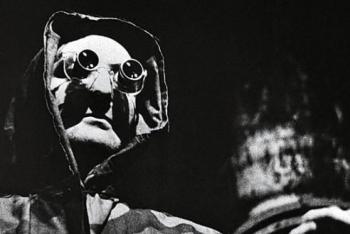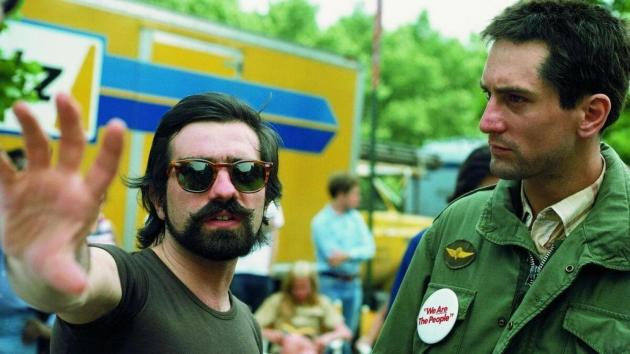Fata Morgana
(West Germany, 1971, Werner Herzog, 79 min.)
Sand, Solitude, and Surrealism: How Herzog's 'Fata Morgana' (1971) Turned the Sahara into an Alien Opera!
Ah, Werner Herzog! The cinematic titan who probably wrestled a grizzly bear before breakfast and then filmed its existential angst. In the wild, untamed jungles of 1970s filmmaking, Herzog emerged not just as a director, but as an explorer, a philosopher with a camera, obsessed with what he famously termed "ecstatic truth" – a deeper, more profound reality found beyond mere facts. His early career was a relentless quest for the sublime and the absurd in the most extreme landscapes, often pushing cast and crew (and himself) to the brink in pursuit of that elusive, almost mystical vision. Before he was dragging steamships over mountains or literally staring into volcanoes, Herzog was already proving that cinema could be a form of spiritual excavation, challenging conventional narrative with bold, often unsettling, artistic statements. Fata Morgana (1971), a film that defies easy categorization, perfectly encapsulates this early, untamed Herzogian spirit, serving as a mesmerizing, maddening, and utterly unforgettable journey into an alien world that was, in fact, our own planet.
Fata Morgana isn't a film you "watch" in the traditional sense; it's an experience you endure, then ponder, probably with a good stiff drink. It unfolds less as a narrative and more as a hypnotic, often bizarre, series of vignettes shot in the scorching expanses of the Sahara Desert. Imagined as a message from an alien race attempting to understand Earth, the film presents humanity as a collection of baffling, self-destructive creatures, and the desert itself as an otherworldly, almost sentient landscape. We encounter everything from decaying animal carcasses and abandoned vehicles to absurd human endeavors: a man trying to drive a car blindfolded, a group of Germans recreating the sinking of the Titanic in a puddle, or peculiar individuals pursuing mundane tasks with an almost religious fervor. It's a darkly comedic, deeply melancholic, and utterly surreal vision of human folly and the illusion of civilization, all framed against an indifferent, yet stunningly beautiful, wasteland. You'll laugh, you'll scratch your head, and you'll probably question your own sanity a few times.
Werner Herzog's directorial audacity is on full, glorious display here, as he crafts a film that is essentially a feature-length mirage. The cinematography is breathtaking, transforming the seemingly barren desert into a character of immense, alien beauty and desolation. The film's unique structure, devoid of conventional plot or "characters" in the acting sense, instead relies on Lotte H. Eisner's poetic, philosophical narration (read by Herzog himself), which provides an almost biblical commentary on the bizarre sights unfolding before us. The hypnotic score, primarily by Popol Vuh, adds to the otherworldly atmosphere, elevating the mundane to the mythical. Fata Morgana remains a deeply polarizing film – some find it profound, others utterly impenetrable – but its uncompromising vision, its startling imagery, and its relentless questioning of existence make it a quintessential cult film for those who appreciate cinema pushed to its most experimental, and often most uncomfortable, edges.
This film, shot under notoriously difficult conditions during the same period as Even Dwarfs Started Small, captures Herzog's early fascination with "the great mad ones" and the extreme fringes of human endeavor. It features Werner Herzog (uncredited) as the narrator, reading text written by the renowned film historian Lotte H. Eisner, which was originally intended to be spoken by an alien. The "cast" consists largely of non-professional actors and local individuals encountered during filming, making their interactions feel even more authentic and bizarre. Fata Morgana was a box office failure upon release, but its artistic reputation has grown immensely over the decades. It stands as a powerful, perplexing, and utterly unique testament to one of cinema's most singular minds, proving that sometimes, the most profound journeys are the ones that take us furthest from home, right into the heart of the absurd.



